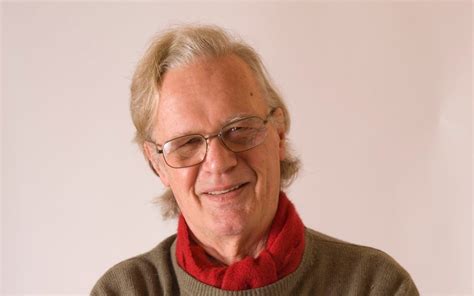A Quote by Johan Rockstrom
Paleoclimatic records show clearly that the past 10,000 years, the Holocene, is a remarkably stable period in which we went from being a few hunters and gatherers to become more sedentary agriculture-based civilizations, which then moved us to the current populated modern era.
Related Quotes
Twelve thousand years ago, everybody on earth was a hunter-gatherer; now almost all of us are farmers or else are fed by farmers. The spread of farming from those few sites of origin usually did not occur as a result of the hunter-gatherers' elsewhere adopting farming; hunter-gatherers tend to be conservative.... Instead, farming spread mainly through farmers' outbreeding hunters, developing more potent technology, and then killing the hunters or driving them off of all lands suitable for agriculture.
I don't really know what's going to happen 10,000 years from now. We've been biologically modern for, what, almost 200,000 years? Let's go back to the cave paintings: I think the moment that someone landed a charcoal on a wall to describe reality, that's language already - that happened on a vertical surface, which, even though they didn't build it, somehow we could understand it as architecture because there's a cavity that separates the inside and outside. That's 40,000 years in the past.
A few years ago, they [Neandertals] were thought to be ancestral to anatomically modern humans, but now we know that modern humans appeared at least 100,000 years ago, much before the disappearance of the Neandertals. Moreover, in caves in the Middle East, fossils of modern humans have been found dated 120,000-100,000 years ago, as well as Neandertals dated at 60,000 and 70,000 years ago, followed again by modern humans dated at 40,000 years ago. It is unclear whether the two forms repeatedly replaced one another by migration from other regions, or whether they coexisted in some areas
Originally the structure was . . . a modern narrator who would appear intermittently and talk about his memories of his grandmother, which would then be juxtaposed against scenes from the past. But the stories from the past were always more interesting that the things in the present. I find this almost endemic to modern plays that veer between past and present. . . . So as we've gone on developing GOLDEN CHILD, the scenes from the past have become more dominant, and all that remains of the present are these two little bookends that frame the action.
When future generations look back on the global-warming scare of the past 30 years, nothing will shock them more than the extent to which the official temperature records – on which the entire panic ultimately rested – were systematically “adjusted” to show the Earth as having warmed much more than the actual data justified.
The 10,000-hours rule says that if you look at any kind of cognitively complex field, from playing chess to being a neurosurgeon, we see this incredibly consistent pattern that you cannot be good at that unless you practice for 10,000 hours, which is roughly ten years, if you think about four hours a day.
If you don't have that science and technology and brains as an input, as you don't have in large parts of Latin America, if you don't focus your education on that, if you don't find your 10,000 best scientists, but you do find your 10,000 best soccer players, the consequences are, you become a World Cup Champion in Soccer, like Brazil, but you don't become Korea, which earned 1/5 of what a Mexican did in 1975 and today earns five times more.
One of the problems with any kind of talking about the media landscape is that we've just been through an unusually stable period in which, for fifty years, English language media was centered in three cities - London, New York, and Los Angeles - around a very stable group of people working in a relatively stable set of media.
Humans lived for several million years as fully wild beings: only in the last 10, 000 did we invent agriculture; only in the last couple of centuries did we invent industry. We are a species that has spent 99 per cent of its history as hunter-gatherers. We haven't had time for our unconscious minds and our unconscious needs to have changed. If you like, our souls have not changed, and this is true whether or not we believe that we have them.
A subject to which few intellectuals ever give a thought is the right to be a vagrant, the freedom to wander. Yet vagrancy is a deliverance, and life on the open road is the essence of freedom. To have the courage to smash the chains with which modern life has weighted us (under the pretext that it was offering us more liberty), then to take up the symbolic stick and bundle and get out.






































